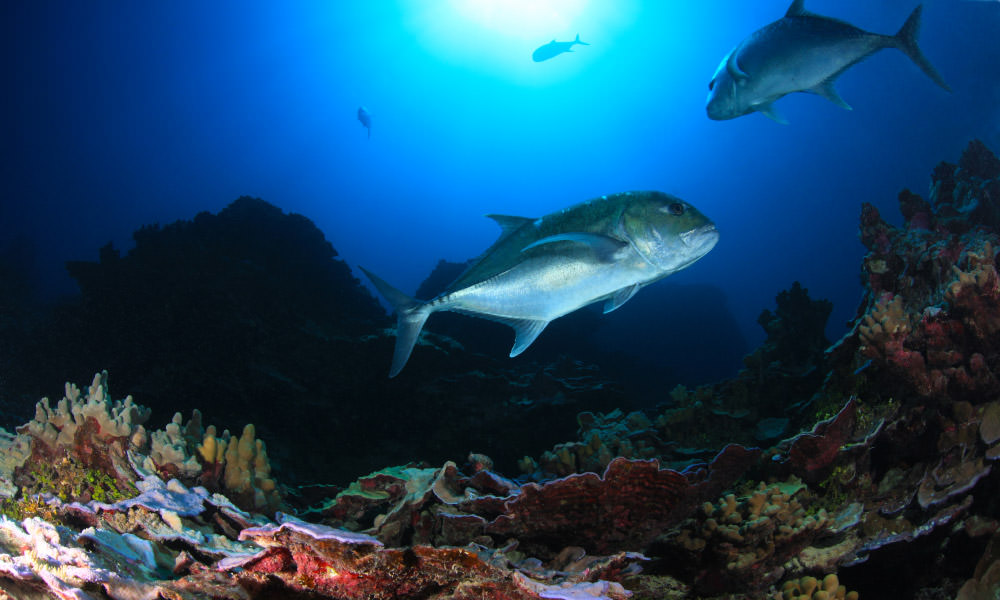Fishing Impacts
National Issue
Both historical and current fishing activities pose diverse challenges to the management of sanctuary resources and the protection of biodiversity and ecosystem health. Fishing activities affect sanctuary resources through direct take, by-catch and habitat damage from the use and/or loss of fishing gear. The removal of targeted species and coincident mortality of non-target species (bycatch) may result in complex and broad-ranging ecological effects. Because fishing can also be size-selective, concerns exist about ecosystem disruption by removal of ecologically-important age classes and key species of top predators (e.g., groupers, snappers, sharks and jacks).
All sanctuaries with management responsibility for the protection of natural resources reported fishing as a significant pressure. Many sanctuary ecosystems have been degraded by decades of overfishing and habitat loss and current activities may further inhibit full community or ecosystem development and function.


